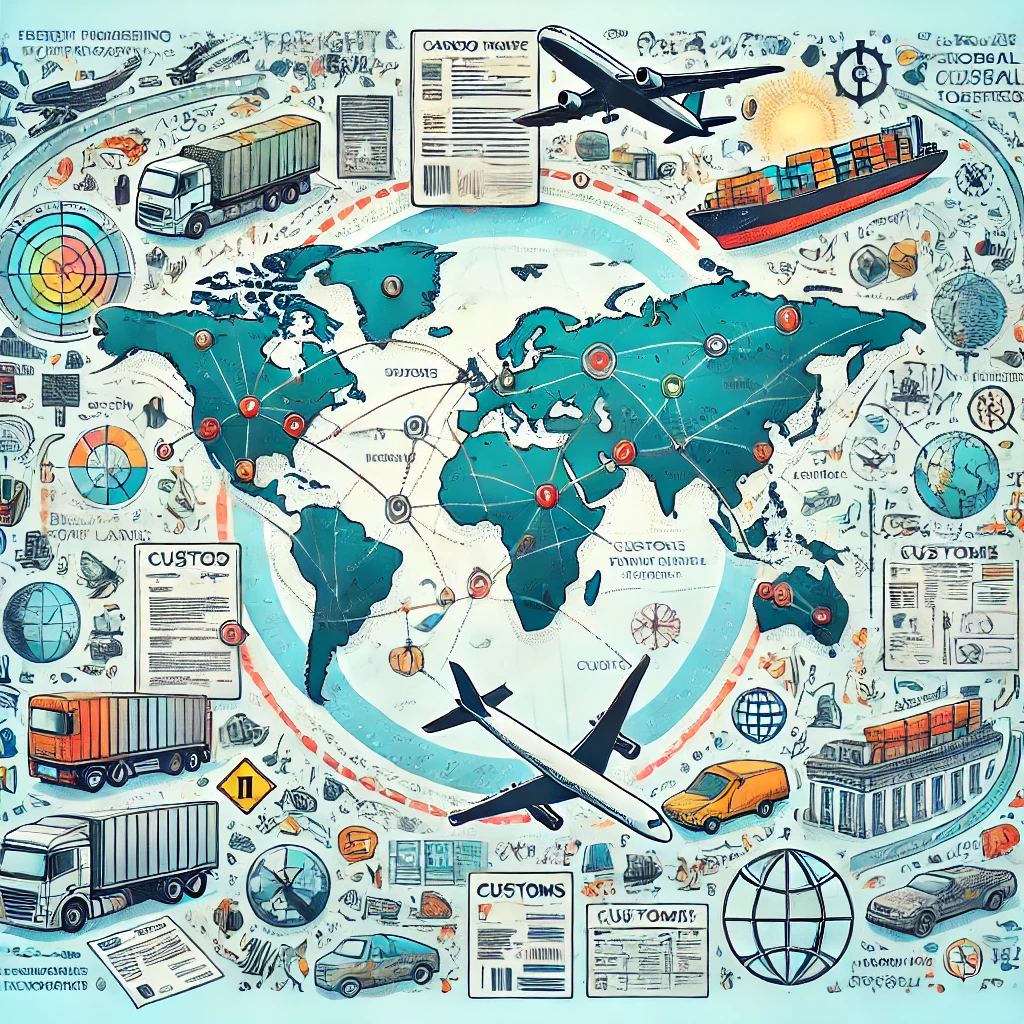In today’s interconnected world, global supply chains are the lifeblood of international trade, enabling businesses to source materials, manufacture products, and deliver goods to consumers across the globe. However, managing these supply chains is no small feat. The complexity of coordinating transportation, customs regulations, documentation, and various modes of shipping can be overwhelming, especially for companies without the expertise or resources to handle such tasks. This is where freight forwarding companies come into play, acting as invaluable partners that simplify and streamline the logistics of global trade.
The Role of Freight Forwarders in Global Supply Chains
At its core, a freight forwarder acts as an intermediary between the shipper (the company sending goods) and various transportation services, such as ocean liners, airlines, and trucking companies. Their primary responsibility is to ensure that goods are transported from one location to another efficiently, cost-effectively, and in compliance with all relevant regulations.
Freight forwarders don’t own the ships, planes, or trucks used in transportation. Instead, they leverage their expertise, industry connections, and buying power to arrange the most efficient and cost-effective transportation solutions for their clients. This includes selecting the best routes, choosing the right carriers, consolidating shipments, and negotiating rates. In essence, freight forwarders handle the logistics, so businesses can focus on what they do best.
Streamlining Documentation and Compliance
One of the most challenging aspects of international shipping is navigating the myriad of documentation and compliance requirements that vary from country to country. These requirements can include bills of lading, commercial invoices, certificates of origin, packing lists, and various customs forms. Mistakes in documentation can lead to delays, fines, and even the seizure of goods.
Freight forwarders are experts in handling these complexities. They ensure that all necessary documents are prepared correctly and submitted on time. They also stay up-to-date with changing regulations, ensuring that shipments comply with the latest customs requirements and international trade laws. This not only prevents costly delays but also helps businesses avoid potential legal issues.
Managing Multi-Modal Transportation
Global supply chains often require the use of multiple modes of transportation to move goods from the point of origin to the final destination. For example, a shipment might start with truck transportation to a seaport, followed by ocean freight, and then another truck or rail journey to the final destination. Coordinating these different modes of transport can be a logistical nightmare.
Freight forwarders excel in managing multi-modal transportation. They have the experience and industry relationships to coordinate seamless transitions between different transport modes, ensuring that goods move smoothly through the supply chain. They also track shipments in real-time, providing updates to clients and addressing any issues that arise during transit.
Risk Management and Problem Solving
Shipping goods across international borders involves inherent risks, from weather disruptions and port strikes to lost or damaged goods. Freight forwarders play a crucial role in managing these risks. They assess potential challenges in advance and develop contingency plans to mitigate them. For example, if a port strike threatens to delay a shipment, a freight forwarder might reroute the shipment through an alternative port or arrange for expedited air freight to meet deadlines.
In the event of problems, freight forwarders act as problem solvers. They have the knowledge and connections to resolve issues quickly, whether it’s coordinating with carriers to locate a lost shipment or working with customs officials to clear goods that have been held up. Their ability to respond to challenges in real-time minimizes disruptions to the supply chain and ensures that goods reach their destination as planned.
Cost Optimization
Another significant benefit of working with a freight forwarder is cost optimization. Freight forwarders have deep industry knowledge and established relationships with carriers, allowing them to negotiate favorable rates on behalf of their clients. They can also consolidate shipments from multiple clients, reducing costs by sharing space in containers or on pallets. Additionally, freight forwarders can identify opportunities for cost savings through route optimization, load planning, and by leveraging economies of scale.
By outsourcing logistics to a freight forwarder, businesses can often achieve significant cost savings compared to managing their shipping needs in-house. This is particularly beneficial for small and medium-sized enterprises (SMEs) that may not have the volume or resources to secure competitive rates on their own.
Conclusion
Navigating global supply chains is a complex endeavor that requires expertise, attention to detail, and a deep understanding of international logistics. Freight forwarding companies play a crucial role in simplifying this process, handling everything from documentation and compliance to multi-modal transportation and risk management. By partnering with a freight forwarder, businesses can focus on their core operations, confident that their goods will be delivered efficiently, cost-effectively, and in full compliance with global trade regulations. In an increasingly globalized world, the expertise and services of freight forwarders are more valuable than ever, helping companies of all sizes navigate the complexities of international trade with ease. If you are looking for the best frieght forwarding company in Saudi Arabia, you may please contact SATSCO
 عربي
عربي عربي
عربي